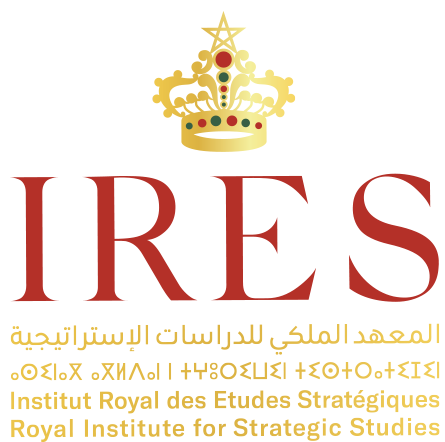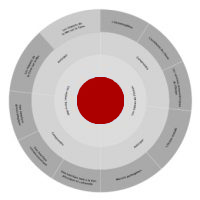Context / TOWARDS A NEW DEVELOPMENT MODEL
In a volatile, uncertain, complex and ambiguous world (VUCA), the design of a new development model for Morocco must address the main disruptive trends that are changing the global landscape. Four clusters of disruptive trends are rooted in the limits of the dominant capitalist economy and in the societal and technological changes underway:
The shift from material to immaterial values, motivated by the impasse reached by the existing international socio-economic system, which is based on a concept of value that only serves to increase the “commodification” of all human activities. This impasse has broken the social bond and generated growing inequalities. New aspirations are emerging in favor of more justice and respect for life and freedom, more human solidarity and social ties.
The revalorization of the human being in order to remedy the weakening of social cohesion, the increased inequalities, the growing malaise of individuals and the risk of a future world without jobs resulting from the increasing automation and the deployment of capacities in ever wider fields of artificial intelligence and material and virtual robotics.
The end of the predatory economy on which the dominant economic model is based, as the Anthropocene has profoundly altered the planet’s capacity to satisfy the needs of humanity. The unbridled exploitation of nature by humankind has led to three major upheavals that will shape the 21st century: a major climate change, the depletion of natural resources and associated imbalances such as desertification.
The rapid emergence of disruptive technologies, which is one of the characteristics of the “exponentiality” of developments and which increases inequalities: the energy transition towards a post-carbon economy, additive manufacturing, physical and virtual connected robotics, and dematerialization technologies are all disruptions that require guidance from the public authorities.
To face these drastic changes, Morocco’s new development model should be based on four interdependent pillars: placing humans at the center of development, reconsidering the relationship between humans and nature, contributing to globalization by ensuring the articulation between the local and global levels, and preparing Morocco to face the “exponentiality” of developments, thanks to an ambitious strategy that will enable it to leapfrog the steps in terms of development.
These pillars must be supported by a new governance whose two main principles are justice and ethics on the one hand and flexibility and adaptation on the other. All of this should be part of a renewed social contract, the effective implementation of which would offer opportunities to all citizens in an equitable manner, for the sake of inclusion. In this social contract, particular attention should be paid to two important dimensions of social capital: gender, especially the inequalities suffered by women, and interpersonal trust, including through the respect of rules.

